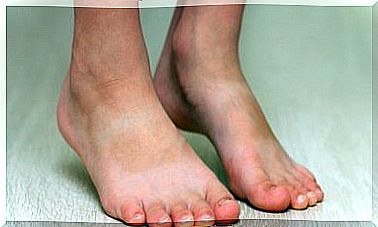How To Prevent Eating Problems In Children?

Often, parents are worried because they do not know how to prevent feeding problems in children. As they grow, they become more and more demanding at mealtimes. They even often seem to like almost nothing.
Taking into account the foods that you do not want to eat and those that should be avoided, the options end up decreasing considerably. However, if the bad habits continue, children can suffer from illnesses caused by the lack of consumption of foods rich in vitamins and minerals.
On the other hand, it is also possible for them to gain weight. This is because they eat too many foods with processed sugar or saturated fats. But, after all, how to avoid these disturbances?
Factors that indicate future feeding problems in children
Parents should be aware of the appearance of the following signs, as they may be indicators of possible eating disorders in the future:
- Children underweight, small for age, or so-called premature.
- Difficulty in moving from breastfeeding to the consumption of solid foods.
- Pain when eating or when parents force to eat.
- Excessive discipline at mealtime, especially when this occurs without companionship or emotional stimulation.
- Traumatic causes such as mouth sores or cases of choking. This can cause fear when eating.

How to avoid eating problems in children?
If we identify the root of the problem, it is easier to put a plan into practice to improve the discomfort or suffering that the child feels when eating.
When complementary feeding is incorporated along with breastfeeding, it should take place in a controlled manner. One idea is to start by offering your child foods that older children tend to dislike.
That way, she’ll get used to the taste and texture early on. This decreases the chance that the child will reject this type of food in the future.
How to help children to eat healthy foods?
In general, it is difficult for babies to accept new foods. This is known as neophobia.
So, when they grow up, they prefer foods high in calories. It is true that this type of food easily satisfies hunger, but it does not nourish properly.
If you offer sweets or processed foods at mealtimes, obviously they will eat calmly without thinking about the negative consequences that will appear over time. They will probably prefer this type of food, rather than the food their body really needs for proper development.
To avoid this behavior, parents should set an example and consume healthy foods, avoiding those high in sugars and fats.
Another important aspect is to make mealtimes the most pleasant time of the day. Not just for the food, but also for the company. It is necessary that children feel comfortable eating and that they enjoy both their food and the environment around them.

Recommendations for creating good eating habits
Eating well is a matter of habit. Therefore, we offer the following recommendations to facilitate your child’s process of adapting to a healthy diet.
- Food portions should be small. In addition, you can offer some fruit as a dessert and, as a drink, a glass of cold water.
- There are children who are not tolerant to some foods for different reasons. In these cases, it is recommended not to force them to eat. Instead of getting used to it, they can actually create an aversion to a certain food in the future.
- Take some time to rest after each meal if possible. This way, it avoids problems and constipation or inflammation of the intestines because the digestion is carried out properly.
- Main meals such as breakfast, lunch and dinner must be taken at a fixed time.
- It is recommended to wait two hours for snacks between meals. In that case, it is preferable that it be a fruit.
- As for sweets and treats, they should be offered occasionally. For example, you can choose a day of the week to eat candy.
- Fats should not exceed 40% of daily meals. Meanwhile, proteins must provide 20% of calories and must be combined between animal and vegetable origin.
- It is necessary to moderate the consumption of salt and sugar per day because they are harmful to health.
- Involving children in organizing the week’s menu can be very stimulating for them.
- In order to balance the calories that the child consumes, it is necessary to practice some sport.
If you put these recommendations into practice, you can prevent feeding problems in children. In the future they will certainly thank you for being helped to grow healthy and strong. One last detail to keep in mind: in case of doubt, it is always better to consult a pediatrician.









